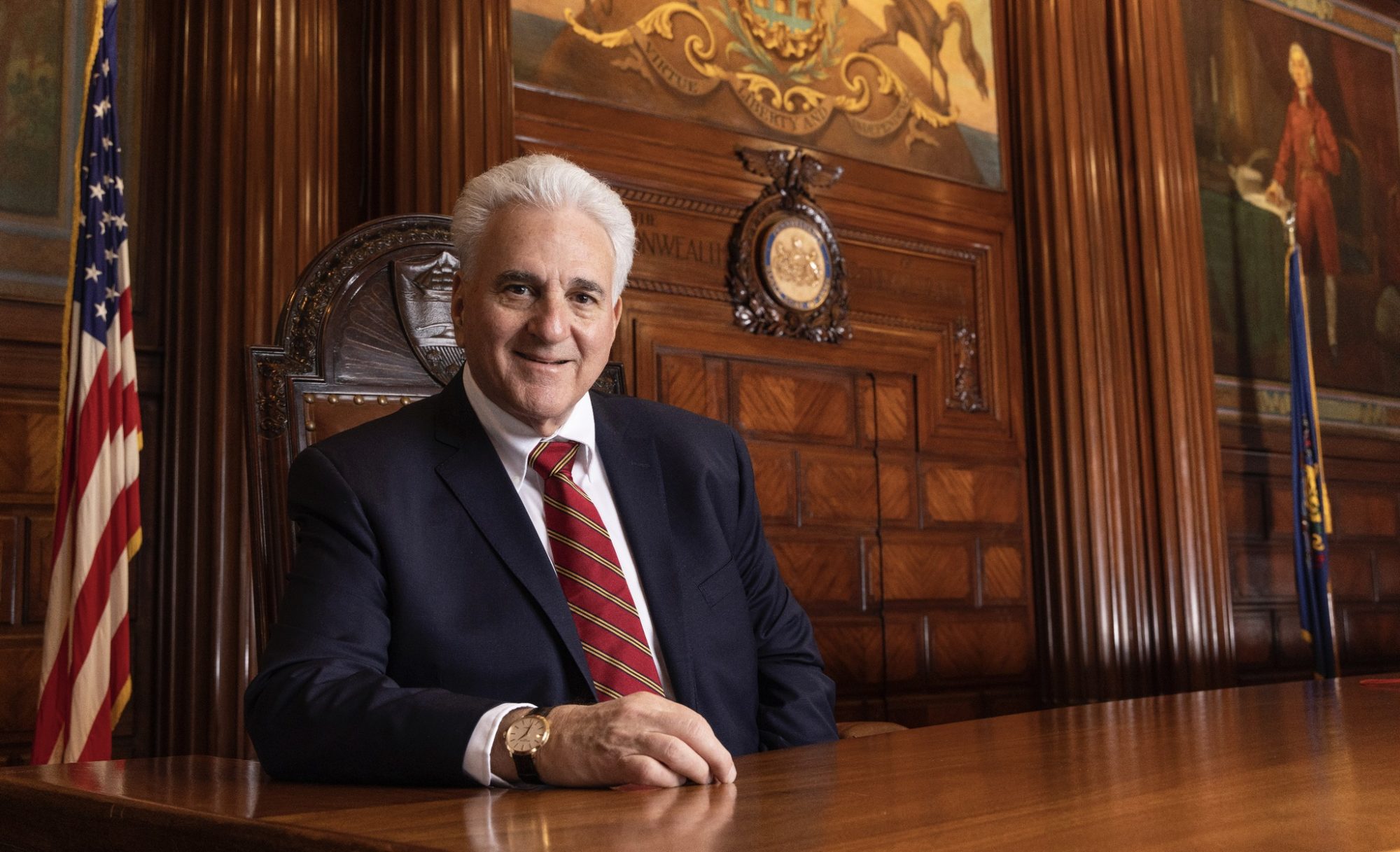Pennsylvania’s Chief Justice, Part of a Court Majority to Shield Voting Rights, Died on Friday
Doug Mastriano could appoint a new justice on the state supreme court.
Daniel Nichanian | October 3, 2022


Max Baer, Pennsylvania’s chief justice, passed away on Friday night after nearly two decades on a state supreme court that has been critical for voting rights and redistricting.
He was a Democrat, part of the court’s 5-2 Democratic majority that in 2018 struck down the GOP’s congressional gerrymander and has repeatedly ruled against efforts to erode voting rights. In 2020, the court sank Donald Trump’s bid to overturn Pennsylvania’s presidential results. In August, it voted on party lines to salvage Act 77, which authorizes all Pennsylvanians to vote by mail, after a lower court ruled that measure to be unconstitutional. Baer was in the majority for all those decisions.
Baer was set to quit the court at the end of 2022 as he hit the mandatory retirement age of 75, which would have left a vacancy on the court. His death raised new uncertainty as to the timing of his replacement, and brought a sudden reminder that the fate of the judiciary is also tied into a high-stakes governor’s race.
Judicial vacancies in Pennsylvania are filled by the governor, and that is retiring Democrat Tom Wolf until mid-January; but they are also subject to confirmation in the state Senate, which is currently in Republican hands. If Wolf nominates a replacement for Baer, Senate Republicans could either confirm his pick or stall and throw the choice to the winner of the race between Republican Doug Mastriano and Democrat Josh Shapiro.
Mastriano, a far-right lawmaker running for governor with Trump’s blessing, has drawn national attention for his active participation in efforts to overturn the 2020 results, and his promise to appoint a like-minded secretary of state, which could throw the 2024 elections into disarray. If he were to appoint one or more justices to the state supreme court, Mastriano would also shift the balance on the body that would be the main check on him and his secretary of state.
The secretary of state would be tasked with certifying election results, a typically clerical role that a Mastriano appointee could weaponize to reject results, Bolts reported in July. Election law experts stress that Pennsylvania’s courts would be one stopgap against such a maneuver, much like in Michigan last month, when the GOP stumbled in its dress rehearsal for overturning elections. “There would be an effort in Pennsylvania state courts to get the Secretary of State to follow the law,” Rick Hasen, a professor at UCLA Law, told Bolts at the time.
But Hasen told Bolts in a follow-up email this week that, “It would certainly worry me if election denialists have the opportunity to appoint Justices to a state supreme court… We need people everyone can trust to be in these positions.”
A spokesperson for Wolf told Bolts that the governor “has not made a determination at this time” on how to proceed with a replacement for Baer.
A spokesperson for Kim Ward, a Republican and the state Senate’s Majority Leader, told Bolts that it was too “preliminary” to say what the Senate should do, and that the senator first wants to see if Wolf intends to make a nomination. (Under somewhat similar circumstances at the federal level, U.S. Senate Majority Leader Mitch McConnell blocked consideration of a vacancy on the U.S. Supreme Court in 2016 under President Barack Obama, and then rushed filling another vacancy in 2020 under President Donald Trump, maximizing conservative power.)
Partisan calculations are not always straightforward: The only justice appointed by Wolf, Sallie Mundy, is a Republican. But Wolf appointed her to fill a seat that was already held by the GOP. (Mundy went on to win a 10-year term in 2017.) Mastriano and Shapiro, who has a lead in polls, did not reply to requests for comment from Bolts on how they would handle court vacancies.
Still, Republicans have been stewing over the court ever since their party lost their edge on it last decade. GOP lawmakers in 2021 floated a constitutional amendment to create a new system of electing justices in districts, which the legislature would get to draw and gerrymander, rather than statewide. Panned as a power grab by critics, the proposal stalled but may return in upcoming legislative sessions if Republicans retain the legislature. The new vacancy only adds uncertainty to the court’s composition in the future.
Whoever replaces Baer will have to run in 2023 if they want a full term; incumbents typically have the upper hand in judicial elections when they run. None of the six other seats are up until 2025, so Democrats would keep a majority until then barring any other unforeseen vacancies, which tend to arise. Last month, the chief justices of Illinois and Michigan announced their early resignations on the same day, and the chief justice of New York unexpectedly stepped down in July, breaking up that court’s right-leaning majority.
Illinois and Michigan are among the 32 states this year that are holding supreme court elections, which are also critical on reproductive rights. That issue also resonates in Pennsylvania, where abortion is currently legal but where Mastriano sponsored legislation as a senator to severely restrict abortion; he told a radio show in 2019 that women who vioalate his ban should be charged with murder.
Such a law is no longer prohibited by federal jurisprudence since the U.S. Supreme Court overturned Roe in June. The Pennsylvania supreme court ruled in 1985 that the state constitution does not protect abortion access, but a strong Democratic majority could be open to revisiting that question.

